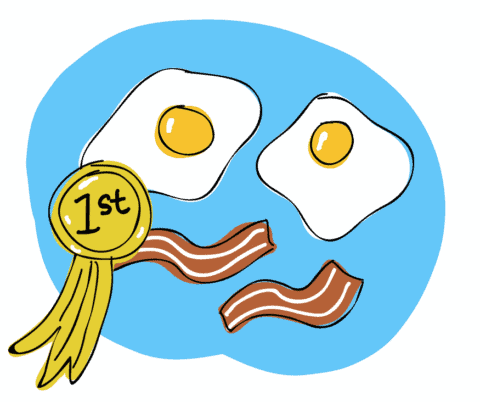In the wake of New Year’s resolutions — successful or otherwise — January can be a time of reflection for many who see room for improvement in their health.
Amidst these reflections, it is important to be critical of the wide variety of nutritional information that is available. In the age of the Internet, there are many cases of health-related facts being inaccurate or even completely false.
Embarking on the journey towards a healthier lifestyle is generally a very worthwhile endeavor, but misconceptions and other falsities can easily derail one’s efforts — leading to a loss in motivation and a lack of results.
One of the most well-known nutrition misconceptions is the classic “lose 10 pounds in a week” diet. This generally takes the form of changing one small thing about  your lifestyle that allegedly yields fantastic results. Regardless of the effectiveness of these “fad” diets, they are not a healthy method of losing weight or obtaining a healthy lifestyle.
your lifestyle that allegedly yields fantastic results. Regardless of the effectiveness of these “fad” diets, they are not a healthy method of losing weight or obtaining a healthy lifestyle.
No matter what your Instagram feed or TV commercials tell you, losing 10 pounds a week is not healthy or sustainable. After the initial weight loss it becomes unhealthy to lose more than three pounds per week. Regular weight loss is best achieved through a more moderate and traditional approach of a mix between fewer calories and more exercise.
Another common piece of advice is that one must avoid late-night snacking, as it will have an increased effect on weight gain. The truth is, the time of day when you consume your calories has pretty much no impact on your overall health. What actually matters for weight loss is the total number of calories that are consumed in a day.
The reason for this myth may be that, for some people, the evening can be a problem time for overeating. To combat this, as well as a general practice, it is best to spread out calorie consumption throughout the day in order to negate the need for a snack in the evening.
One misconception that is slowly fading from popularity, in large part due to the increasing popularity of veganism and vegetarianism, is that it is impossible to get a complete and healthy intake of protein without consuming meat. In fact, it is quite possible to obtain all the protein needed for a healthy diet through plant proteins found in grains, beans and nuts.
It could be said that this over-conscious take on protein is unnecessary at best. While dietary needs vary from person to person, only about 10 per cent of caloric intake needs to be protein, with many people regularly consuming more than this.
Then there is one of the most pervasive of health misconceptions — that in order to be healthy a human being must drink at least eight glasses of water a day. The best approach to hydration is actually to simply drink when you feel thirsty. This is because your body will know when water is needed.
Consuming too much water is potentially dangerous and puts you at risk for exercise-associated hyponatremia, in which your kidneys are not able to fully rid your body of excess water. While eight glasses of water is not likely to cause health risks, it simply is not the metric that should be used in gauging hydration.
Keeping these misconceptions in mind is a key part of developing a healthy lifestyle, especially in a time when inaccurate information is so easy to access. Doing one’s own research and getting information only from trustworthy sources is crucial in ensuring success in the pursuit of wellness.
—
Jack Thompson / Staff Writer
Graphic: Lesia Karalash / Graphics Editor
Leave a Reply